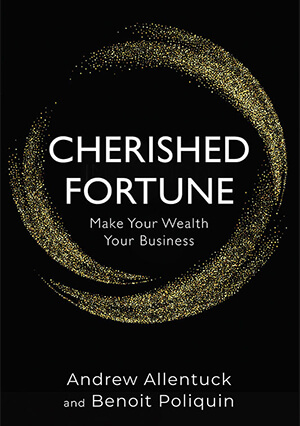In the course of normal work as financial planners we gather data from our clients, enter them into complex software programs and make projections about the future. I often say, the farther we look into the future using the crystal ball, the murkier the predictions. We’re like seventeenth century astrologers trying to predict the future but with better math tools. We use assumptions for interest rates, saving rates, returns on investments, inflation and even economic trends. When doing this kind of data-modelling, changing one assumption by a few fractions of a percent and looking at the impact over decades produces dramatically different results. It is standard then to make the disclaimer that projections are subject to the GIGO principle (Garbage In – Garbage Out) meaning the better the inputs, the better the outputs. But there’s one type of assumption that never makes it into the software and rarely makes into any discussions about retirement planning in the industry. The assumption is that we will continue to live in a stable society.
When we look at investing in other countries, these are called political and sovereign economic risks – but in financial plan modelling, assuming we plan to retire in fifteen-or-so years in Canada, it is an implicit assumption that society and the economy will remain relatively stable. We don’t account that we live in an accelerated culture.
Fifteen-or-so years ago, the word smartphone only existed on a whiteboard in a telecom company’s skunkworks. Fifteen-or-so years ago we still walked or drove to blockbuster to rent DVDs. Fifteen-or-so years ago there had never been a black president of the United States while the US predatory mortgage industry was issuing NINJA (no-income-no-job) mortgages accelerating the global financial system towards a frighteningly close encounter with complete collapse. Many analysts acknowledge that without the emergency interventions in September of 2008, we were only minutes away from the complete collapse of the global economy.
In the last decade we’ve seen the rise of far-right populism and authoritarianism around the world. Propaganda and Disinformation are the weapons of these movements, and they pollute the media environment like nothing we’ve seen since emerging fascism in Germany in the 1930s. It has been seventy-five years since the end of WWII and we have no living memory of the phenomenon that seemingly stable countries, even globally leading societies, can fall to tyrants in only five or six years if those tyrants gain sufficient leverage on power. It follows very predictable patterns. What’s happening around the world is exactly what Orwell warned about in 1984.
We’ve seen the complete collapse of some nation states like Syria, Yemen. Hungary and Turkey have moved to full authoritarian rule. Venezuela and Brazil teeter on the precipice in South America contributing to the migrant crisis at the US southern border where the Republican Party has become an extremist right-wing force that seeks only power and wields only what-about-ism, conspiracy theory and denialism on an Orwellian scale; The Party now consistently telling the people to reject the evidence of the own eyes and ears.
How does this factor into financial planning and future financial projections? We assume these things can’t happen here; they can’t happen now. Yet we’re seeing the symptoms of far-right movements in Canada. The Proud Boys were founded in Canada, by a Canadian and members of the Conservative party openly flirt with Trump-Style rhetoric and propaganda and collaborate with Canadian versions of OAN and Newsmax.
How will things like climate risk, pandemic risk, genetic-engineering risk, Artificial Intelligence risk, and the risk of political extremism here and abroad affect the world we’re living in over the coming decades?
Don’t mistake me for a guy on the street-corner wearing a sandwich board and a tinfoil hat, nor a partisan. I recognize however that if my professional role is gazing into the crystal ball trying to understand how choices and circumstances today will manifest in the future, that I am obligated to be something of a futurist, amateurish though I may be. As such I believe it would be naive to think that in the most rapidly accelerating culture in history, that we’re certain that our experience of the past performance of our western democracies will equal future results. We’ve been living in an exceptionally well-gilded age and all it takes is to be a few fractions of a percent wrong on our assumptions about the future to miss the mark on what our retirement years will look like by a very significant margin.
So what are some things we can do without becoming full-fledged preppers or devotes of Bear Grylls ready to eat sheep eyeballs in a pinch? Has the pandemic taught us anything? Simple skills are in fashion. Learn how to grow a garden and bake bread. Keep a stock of essentials. Make sure the hand-tools are sharp and you have some basic, simple resources so that if the lights, heat or water goes out for some reason, you can still read a paper book by candle for a while. If we’re planning for the future, this is like buying insurance, you hope you never need it, but if something goes wrong, you’re covered.
In the meantime, we carry on financial planning for the future as normal but if we ignore the current major risk trends in the world and only trust the wealthy barber, we might just be in for avoidable future shocks.






